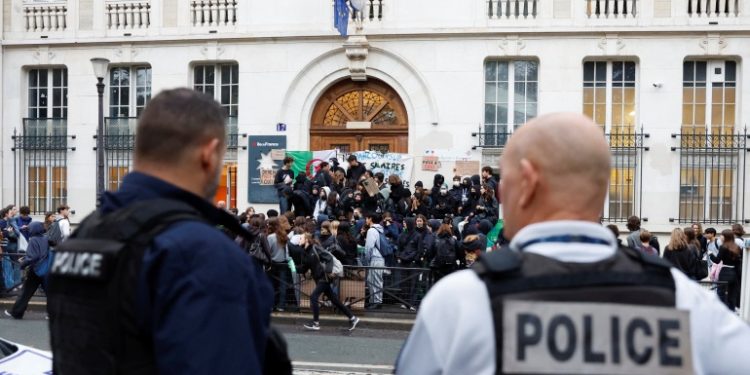By Ebi Kesiena
French trade unions have begun a nationwide strike to demand higher salaries amid the highest inflation in decades, one of the biggest challenges to President Emmanuel Macron since his re-election in May.
Tuesday’s strike, which primarily affects public sectors such as schools and transportation, is an extension of the weeks-long industrial action that has disrupted France’s major refineries and put petrol stations’ supply in disarray.
According to transport Minister Clement Beaune, Rail operator will experience severe disruptions with half of train services cancelled. Suburban services in the Paris region and bus services are also impacted, operator RATP said, but the inner-Paris metro system should be mostly unaffected.
The effects were already visible at Paris hub Gare de Lyon on Tuesday morning, with packed suburban trains disgorging floods of passengers onto the platforms every 15 or even 20 minutes.
Reacting, Commuter Yera Diallo stated that, I’ve got a two- or three-hour trip today, rather than an hour and a half normally,” said, adding that I have no idea how it’s going to go this evening”.
Beyond transport workers, unions hope to bring out staff in sectors such as the food industry and healthcare.
Trade union leaders are hoping workers will be energised by the government’s decision to force some of them to go back to work at petrol depots to try and get the fuel flowing again, a move some say may jeopardise the right to strike.
The union notably has called for continued walkouts into a fourth week at TotalEnergies, despite the oil company reaching a deal including a 7 percent increase and a bonus on Friday with other unions. The group is demanding a 10 percent pay rise, citing inflation and the firm’s huge profits.
As tensions rise in the euro zone’s second-biggest economy, strikes have already spilled over into other parts of the energy sector, including nuclear giant EDF, where maintenance work crucial for Europe’s power supply will be delayed.
However, the strikes are happening in a tense political context as the French government is set to pass the 2023 budget using special constitutional powers that would allow it to bypass a vote in parliament, Prime Minister Elisabeth Borne said on Sunday.


































